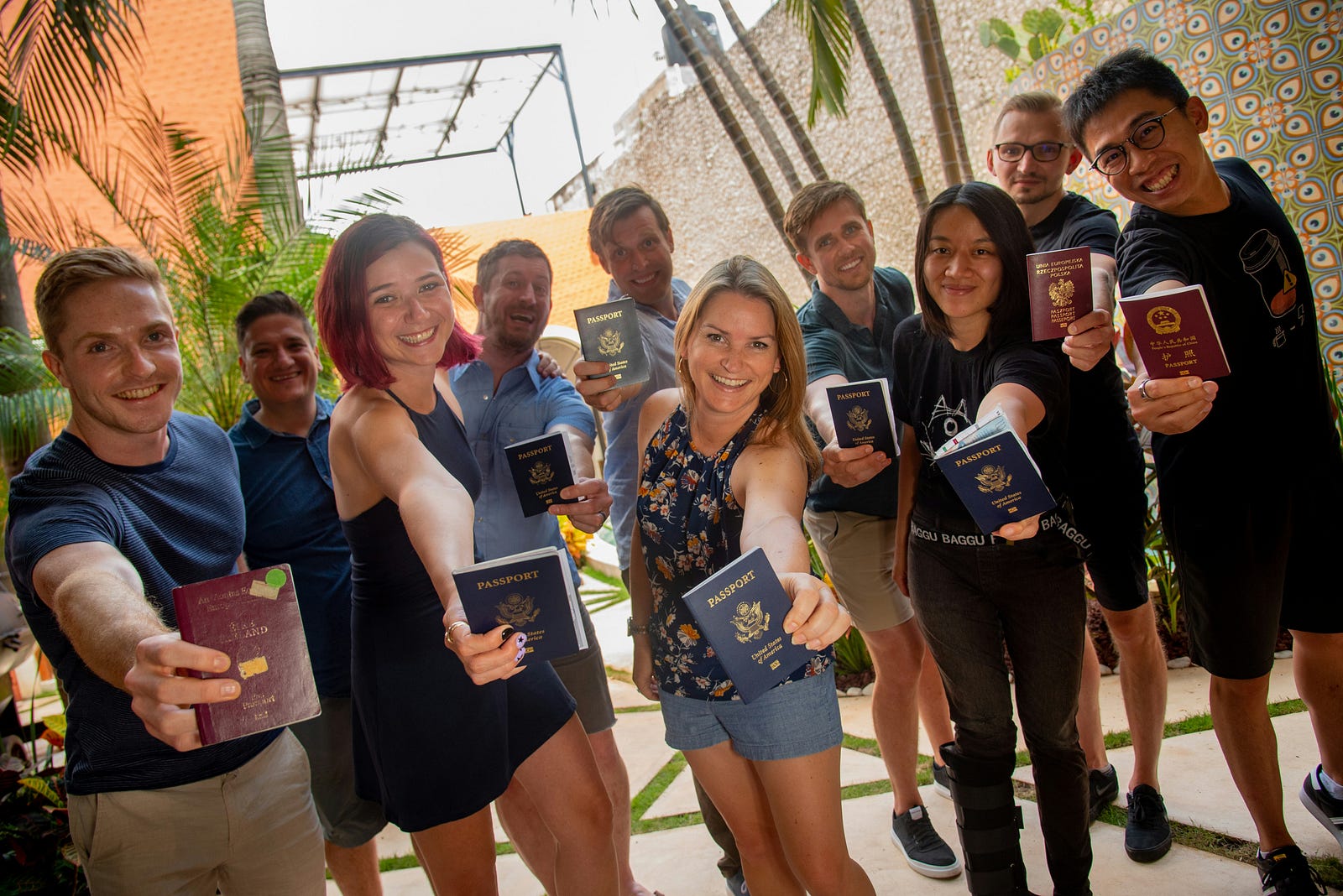Dreaming of trading the UK’s rainy days for the sunny skies of Spain? When the UK left the European Union on 1 February 2020, the automatic right to move to Spain came to an end, and many Brits thought that their dreams of life in the sun were over.
The good news, though, is that there are actually still a range of visas available for people wanting to move to Spain from the UK. Some of them will even grant you unrestricted Schengen Zone travel, meaning you’ll be able to throw away your trip itinerary planner and travel for as long as you want!
Here are your best visa options, including the eligibility requirements, how long you’ll be able to stay in Spain, and what you need to be aware of when it comes to your tax position after moving.
Please note that this blog post is for informational purposes only and should not be considered as legal or financial advice.
Spain Visa Options for UK Citizens
1. Non-Lucrative Visa (“NLV”)
What is it?
The Non-Lucrative Visa (“NLV”) is ideal if you want to live in Spain without engaging in employment there. It’s designed for people who can support themselves financially without working locally, like retirees, remote workers with income from outside of Spain, or anyone with a healthy bank balance.
It’s valid for one year initially and can be renewed every two years. However, unlike some other options, this visa does not grant you free movement within the Schengen Zone. With the NLV, you’ll still be limited to the 90 days in every 180 days limit that applies to you as a UK citizen.
The best way to ensure you don’t go over this limit is by making a careful travel plan and using a travel app that tracks your Schengen days.
Who is it for?
This visa suits older people or pensioners with healthy retirement funds best, although it’s open to anyone with sufficient means to support themselves without working in Spain.
Requirements
To qualify for an NLV, you’ll need to:
◾ Show at least €28,800 in annual income or savings per applicant, plus an additional €7,500 for each family member.
◾ Have evidence of comprehensive health coverage paid upfront annually. The health insurance needs to cover all typical health services without co-pays.
◾ Pay the visa application fee. This varies slightly depending on the location but typically includes a €600 processing fee.
◾ Understand that this visa does not permit you to work in Spain, maintaining the essence of “non-lucrative”.
2. Golden Visa
What is it?
The Golden Visa grants residency in Spain through investment, primarily in real estate. It’s initially valid for two years and can be renewed every five years as long as you continue to meet the minimum investment threshold.
This visa allows freedom of movement within the Schengen Zone, meaning you’ll no longer have to adhere to the 90-in-every-180 rule. That means you’ll never have to travel track your days in the Schengen Zone!
Who is it for?
This visa targets high-net-worth individuals who can make substantial investments in Spain. It’s particularly suited to people looking to invest in property or significant financial assets in Spain.
Requirements
To qualify for a Golden Visa, you’ll need to:
◾ Meet the minimum investment, which differs depending on the type of investment, but, in real estate, is €500,000.
◾ Provide proof of the same level of comprehensive health insurance coverage as the NLV.
◾ Pay all related fees, which include making the relevant investments plus a visa application fee of €70-€80. Legal and additional fees related to the property purchase will also be required.
3. Digital Nomad Visa
What is it?
Spain’s Digital Nomad Visa allows remote workers from non-EU countries to live in Spain while working for companies outside of Spain. It is valid for one year and can be renewed as long as the conditions are met.
As with the NLV, you won’t be granted free movement in the Schengen Zone — you’ll still be limited to the 90 days in every 180 days rule that applies to UK citizens, so you’ll need to use a travel planner app like Flamingo to track your Schengen Days outside Spain.
Who is it for?
This visa is designed for remote workers and digital entrepreneurs whose employers are based outside of Spain. It’s ideal for those in the tech industry or other global digital services industries who can work remotely and have stable income sources.
Requirements
To qualify for Spain’s Digital Nomad Visa, you’ll need:
◾ To prove that you have a steady income at least twice the Spanish minimum wage. Since the monthly minimum wage in Spain is currently €1,134 per month, that means you’ll need about €2,268 per month.
◾ A degree or three years of professional experience.
◾ Show proof of comprehensive health insurance coverage.
◾ Pay the fee of around €150 for the visa and residence permit.
Other Visa Options
Although the NLV, Golden Visa and Digital Nomad Visa are the most commonly utilised and easy to navigate when it comes to moving from the UK to Spain, they aren’t your only options. You could also consider:
◾ Student Visa: This is an option if you’re planning to study in Spain, and includes courses at language schools. This visa allows you to stay in Spain for the duration of your course, and you can also work part-time on it, within limits.
◾ Entrepreneur Visa: If you’re looking to start a business in Spain, this visa offers residence based on the business’s potential for innovation and its economic impact on Spain.
◾ Self-Employed Work Visa: For if you want to establish your own business or work as a freelancer in Spain with permanent roots. This visa requires proof of your business plan’s viability, your relevant experience, and sufficient funds to invest.
Steps to Apply for Residency
No matter which type of visa you opt for, you’ll have to follow a similar process:
1. Choose the Right Visa: Determine which type of visa best fits your situation (e.g., Non-Lucrative Visa, Golden Visa, Digital Nomad Visa, etc.).
2. Gather Documentation: Common requirements across all visa types include your passport, a criminal record check, health insurance, and proof of financial means.
3. Application Form: Complete the application form for your visa category.
4. Legalisation and Translation: Make sure that all documents not in Spanish are legal to be used in Spain. This typically involves getting them notarised, apostilled, and translated into Spanish.
5. Visa Appointment: Book an appointment at the nearest Spanish consulate or embassy in the UK. Submit your application and provide biometrics.
6. Wait for Approval: Processing times can vary, so plan accordingly. Once approved, you may need to enter Spain within a specific timeframe.
Tax Implications
Tax Responsibilities for UK Expats in Spain
As a tax resident in Spain (which means you spent 183 days or more in Spain in one year), you are liable to pay tax to Spain on your global income. If you’re a non-tax-resident in Spain, meaning you spent less than 183 days in the year there, you’ll only pay tax on income you earned whilst in Spain.
The best way to keep track of your days in Spain to work out your tax residency is with the Flamingo — Travel Tracker App. The app uses your location to automatically count the number of days you spend in Spain so that you can determine your tax residency with ease.
Spain’s Dual Tax Structure
Spain has a dual tax system where taxpayers pay both state and regional taxes. The rates can vary significantly depending on the autonomous community you reside in. For example, regions like Madrid tend to have lower tax rates compared to Catalonia or Andalusia.
Potential Benefits Under Treaties and Local Laws
Double Tax Treaties
Spain has double taxation agreements with many countries, including the UK, which means you won’t pay tax on the same income in both countries.
The Beckham Law
Named after the footballer David Beckham, this law allows high-earning employees moving to Spain for work to be taxed at a flat rate of 24% on the first €600,000 of employment for the first six years of residency.
Consulting with a tax advisor who understands both UK and Spanish tax laws is the best way to optimise your tax obligations and benefits.
Moving to Spain from the UK: Final Thoughts
And there you have it! Moving to Spain from the UK might seem like a daunting task filled with paperwork and planning, but with the right information and a bit of organisation, your dream of enjoying the Spanish sun can become a reality.









